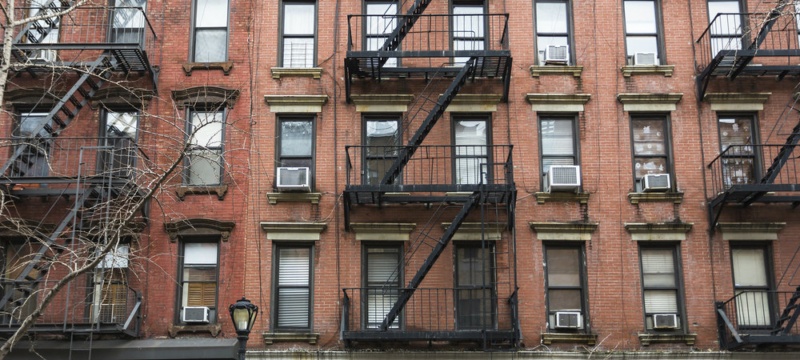Is buying cheaper than renting?
You’ve probably heard that buying a home is cheaper than renting an apartment. And since the housing crisis, when mortgage interest rates dropped to historic lows while rental rates were rising, that was mostly true. Now that mortgage interest rates are rising, that’s no longer a slam dunk.
And, there are other costs associated with buying a home (such as ongoing maintenance and necessary repairs) and selling a home (including the sales commission, transfer taxes, and moving fees) that can boost the overall cost of homeownership.
The bottom line is that while homeownership may be a smart investment for some, personal circumstances and lifestyle may require you to look at other options, including renting.
For instance, many potential homebuyers assume they must put at least 20 percent down, sign a 30-year mortgage, and stay in the home at least seven years to protect their investment. However, this scenario may not work for everyone, especially those without a steady income, enough savings, or those who face a potential job relocation. In these situations, renting might be the cheaper option, particularly over a relatively short period of time.
In addition to an individual’s financial position, the decision of whether to buy or rent may also depend on location. According to Trulia, an online real estate site, in cities such as Honolulu, San Jose, Calif., and Lancaster, Pa., buying is only about 16 to 19 percent cheaper than renting.
A prospective buyer’s income and location can also affect whether purchasing a home is even possible. A recent survey by HSH.co, a publisher of mortgage and consumer loan information, found that a buyer would need an income of about $142,000 in San Francisco and $99,000 in San Diego to afford a median-priced home (including principal, interest, taxes and insurance payments). By contrast, a buyer would need a salary of about $32,000 to own a median-priced home in Cleveland.
Ownership also involves expenses outside of a monthly mortgage, including those associated with care and maintenance of the home. If you’re weighing ownership costs vs. renting, it’s important to keep these factors in mind:
- Utilities: If you decide to buy a home, you might be inclined to buy as much home as possible, because you imagine you’ll live there longer. Yet, that additional space will add to the costs of carrying the home, as increasing square footage will typically increase the costs of utilities. If you’re going from a 700-square-foot apartment to a 2,000-square-foot home, you can likely expect that the cost of your utilities will increase as well.
- Insurance: Homeowners insurance provides protection against basic unplanned costs such as vandalism, storm damage, theft, or fire. This insurance is almost always required by a mortgage lender and should be factored into your monthly home payment calculation. Keep in mind that if your home is in a flood plain or is deemed susceptible to flooding, you may need to buy additional flood insurance beyond any standard homeowners insurance. As for cost, homeowners insurance premiums are typically more expensive than renters insurance premiums.
- Property taxes: Your local property taxes fund important services and amenities including law enforcement, emergency services, public education, and recreation, but they can be expensive and should be factored in when considering a home purchase. The tax will be based on the assessed value of your property, the county, city or town you choose to buy in and its local tax rate. Depending on where you live, property taxes could tack on quite a bit to your total monthly payment.
- Transportation: Consider the time and money involved in any changes to your daily commutes. For instance, if you move to the suburbs but your job remains in the city, you may need to start driving-or driving further-to work, adding time and miles to your day while decreasing your car’s value and increasing your gas costs. Gas prices can be volatile, so it’s important to keep in mind how a sudden increase could affect your wallet.
- Maintenance: As a rental tenant, it’s convenient to call the landlord when your sink is broken. With home ownership, those repair and maintenance costs fall on you, and they can add up. This is even more important to calculate if you’re buying an older home. So consider putting aside at least a few thousand dollars a year for unexpected home repair or maintenance costs for expenses related to major appliances, aging structure, or pest problems. You also need to factor in costs associated with lawn care, depending on your property.
- Homeowners association fees: Some neighborhoods require home owners to pay homeowners association (HOA) fees, for their property. The fees usually go toward the maintenance of common spaces, as well as other costs related to items like insurance, landscaping, or a pool. Before buying, make sure to determine any HOA fees and get a full picture of what they cover. You should also ask if there are any special assessments planned (or in force) and what they will cover. You can ask for a copy of the association board minutes going back over the past two years to see if a special assessment has been planned and then calculate what charge your unit would be assessed.
When you add it all up, you might find that buying a home isn’t any cheaper than renting. You might find it is less expensive to own than rent. Either way, be sure to do your research, factor in your lifestyle, and pick the most appropriate solution for you.






